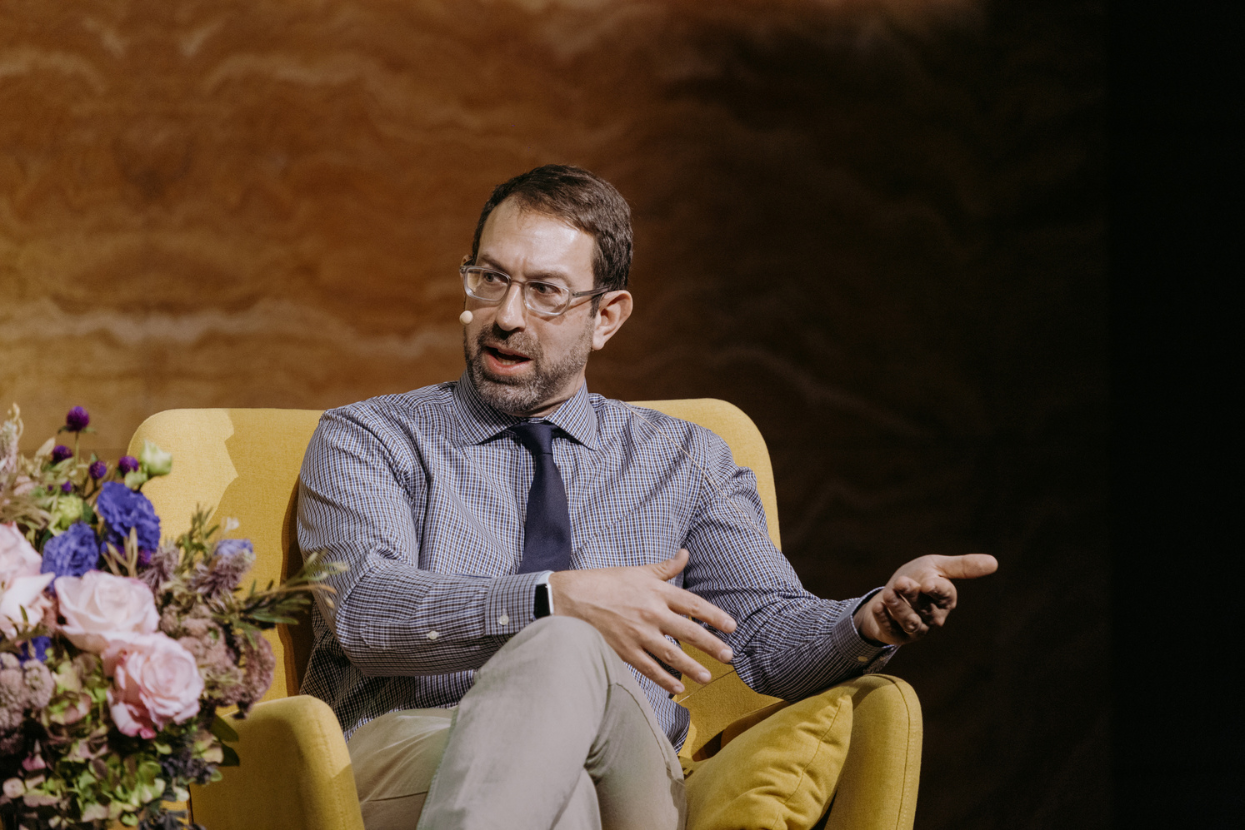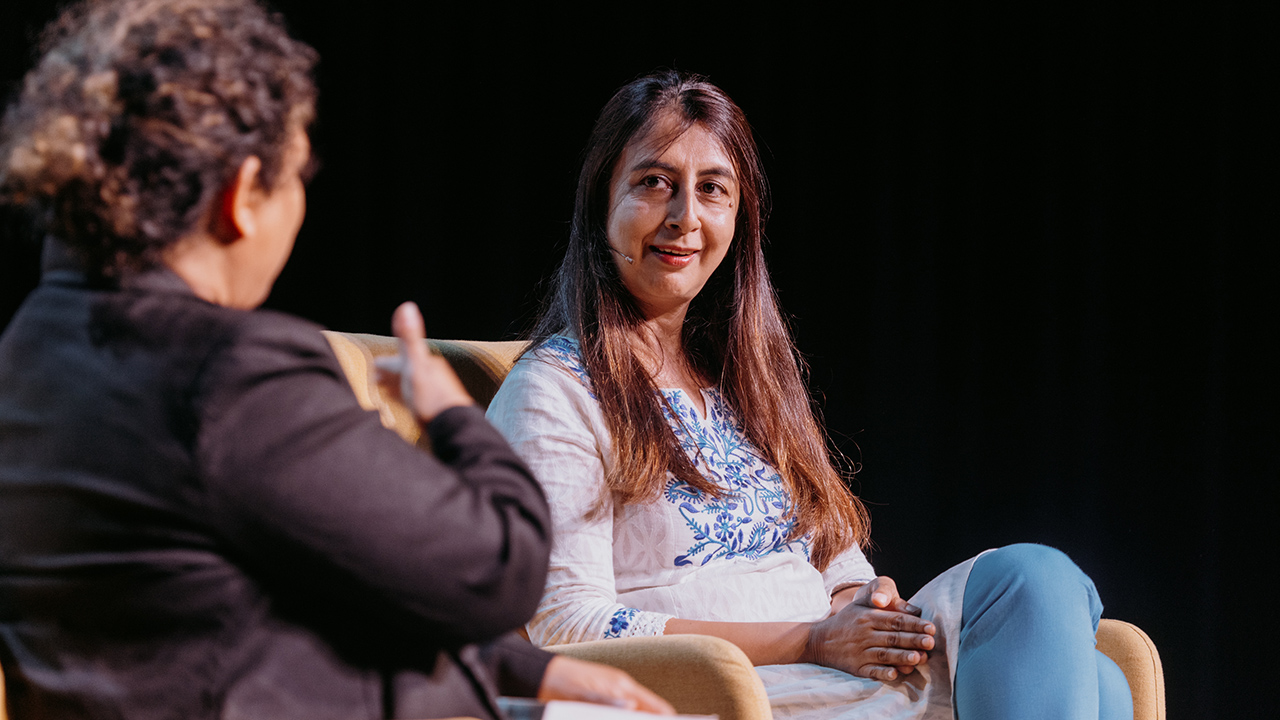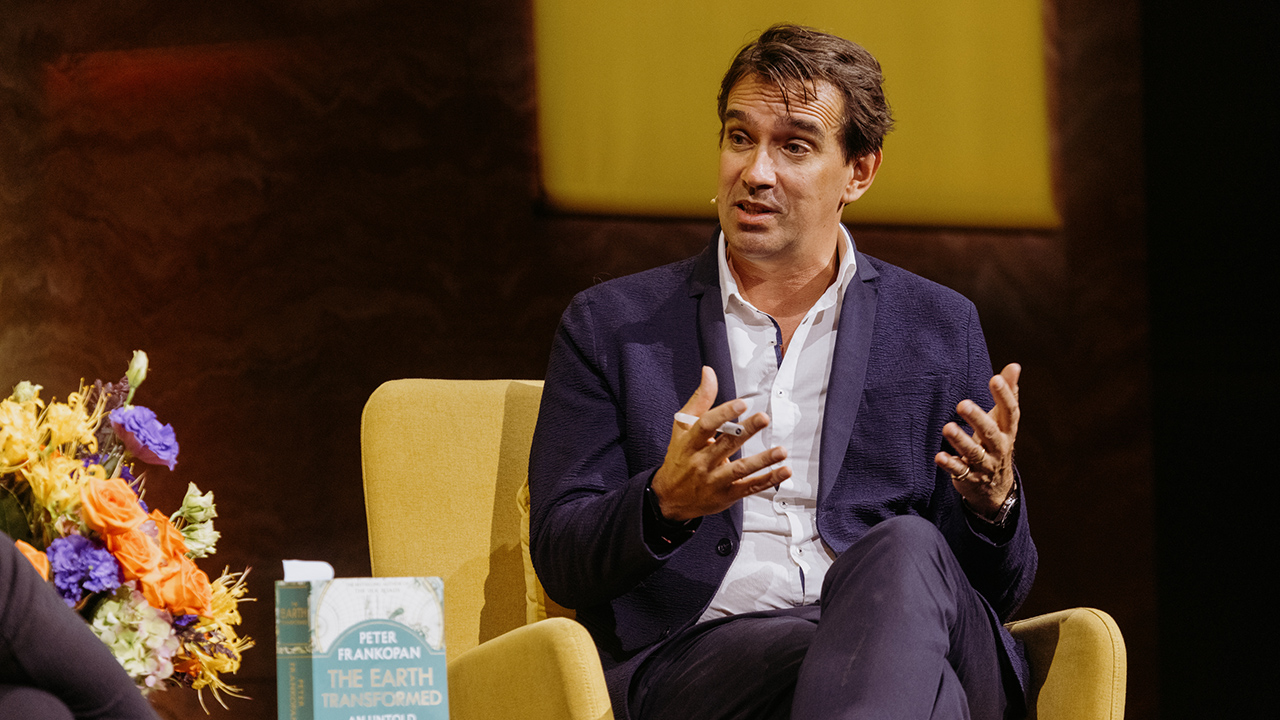Felix Aplin | Building better brains
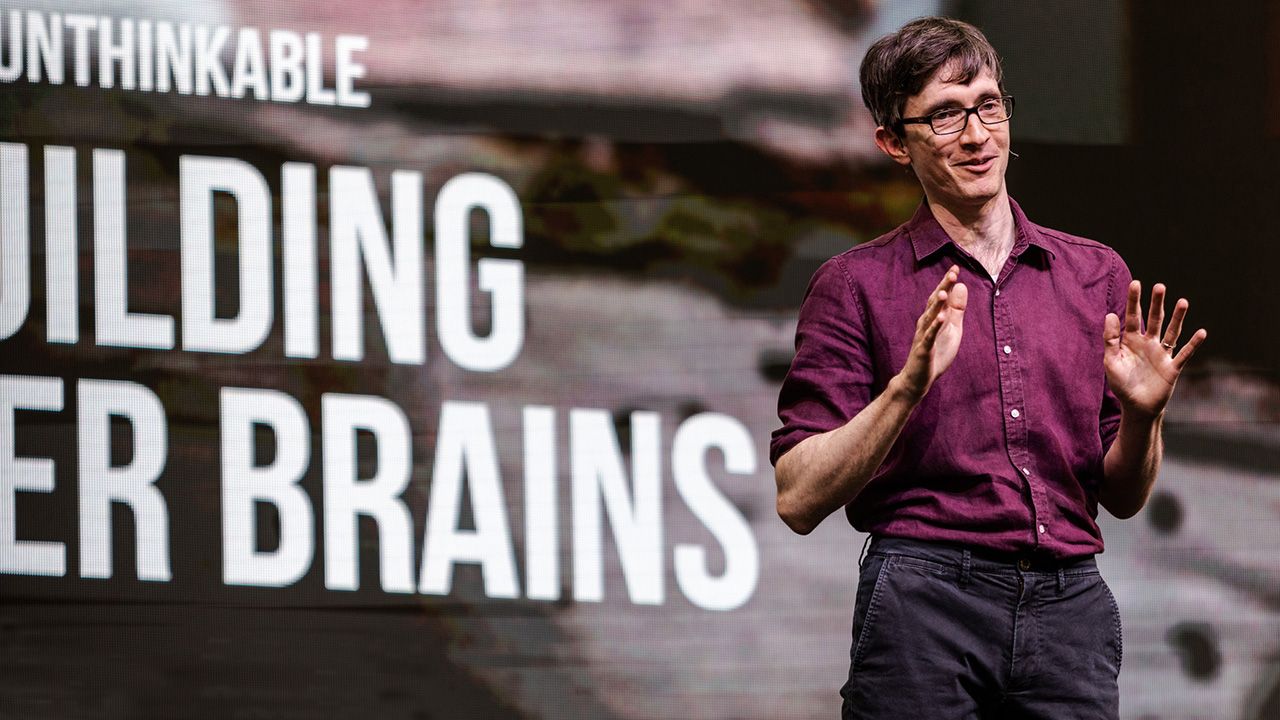
There’s a tendency to consider neural interface engineering as niche, with applications only for rare conditions, but damage to our fragile nervous system is actually incredibly common.
The human brain is the most complicated computer in the world, but we tend to take it for granted. By linking neuroscience and computer technologies, engineers and scientists are creating neural implants to unlock better pain management strategies, accessibility tools for people living with disabilities, and potential human enhancements. As we move into the most connected and information rich age in human history, how can we ensure that we keep our focus on this kind of big picture science so that those most vulnerable are receiving the help they need? Neuroscientist Felix Aplin has some answers.
This talk was a part of Unthinkable, an event of short talks in the 2022 Festival of Dangerous Ideas.
Transcript
Ann Mossop: Welcome to the UNSW Centre for Ideas podcast. A place to hear ideas from the world's leading thinkers and UNSW Sydney’s brightest minds. I'm Ann Mossop, Director of the UNSW Centre for Ideas. The talk you're about to hear, Building Better Brains, features UNSW Sydney’s Felix Aplin and was recorded live at the Festival of Dangerous Ideas.
Felix Aplin: I was a shy, scrawny kid. Constantly sick, I spent a lot of my time reading books and playing video games, and I developed a bit of a fascination with science fiction. So, as a very awkward teenager, when it came time to choose a career, I wanted to do something that would help nudge the 21st century just a tiny bit towards those thriving utopias we see on shows like Star Trek. I had two ideas, work on artificial intelligence, AI, or on cybernetic implants. I chose these because I thought they sounded super dangerous and cool. My teenage decision process was, as such, we don't even understand how our intelligence works, fully. So artificial intelligence must be hundreds of years off. Cyborg implants though, I mean, we have robotic arms in car factories and cameras that can see in infrared. How hard can it be? Just wire them up to humans, right? Also, AI programming is all maths, and I am terrible at maths. So the choice was actually pretty straightforward.
To nobody's surprise, my know-it-all teenage self failed to predict the future advancement of science and technology. Today, AI is the latest hot topic, but we aren't walking around with those cyborg limbs and laser eyes. Still I stuck with it, completed my degree and PhD in neuroscience. And now I work as a research fellow at the University of New South Wales in the field of neural interface engineering. Neural interface engineering. Neural, meaning, the brain. Interface, to connect or communicate with. Engineering, building stuff. So my field builds stuff that communicates with the brain. Pretty straightforward, right? The things that we build are called neuroprosthetics, or sometimes neural implants, and they come in two distinct flavours. The first flavours are sensing implants. These detect the signals from your brain, and they convert it into computer code that can be used to drive, say, the prosthetic arm of an amputee. The other flavours are active implants, these take computer code and convert it into something the brain can understand, usually via these short electrical pulses to the nerves. This is the kind that I specialise in. And a popular example of an active implant would be the bionic ear, made particularly famous in Australia by our very successful bionic ear manufacturer, Cochlear. The bionic ear takes input from a microphone, and using these short electrical pulses, bypasses damage to the inner ear and communicates with the brain in a way that it can interpret a sound, restoring hearing for people with profound deafness.
Now, it's no coincidence that the two technologies I just used as examples help people with disabilities. Neural interface engineering is fundamentally about accessibility, and provides a way for those of us who have lost our ability to sense the world or to physically interact with it, to re-access those functions and in doing so, regain our independence. I think there's a tendency to consider my field as, kind of niche with applications only in rare conditions, but damage to our fragile nervous systems is incredibly common. For example, chronic neuropathic pain is a condition that can arise as a result of chemotherapy, failed back surgery or a car accident. It can cause even the lightest brush or handshake to become agonisingly painful. It is frighteningly common. One in 10 people, very likely a friend or family member of yours, suffers from this condition, perhaps in silence, due to the stigma often associated with chronic pain. I'm part of a research team working on a new neuro prosthetic device that can be implanted in the arm or leg that quiets down this overexcited nerve activity and neuropathic pain, hopefully letting people live their full lives again.
Another example, during my PhD, I worked as part of the bionic eye project which pushed forward technologies to restore vision for people who have gone blind. The most common form of blindness in Australia, age related macular degeneration, quite a mouthful, currently can only be delayed and it can't be cured. As the global population continues to age, the prevalence of conditions like this is only going to increase and people are being left increasingly in the dark. The growth of our society is the collective intellectual, emotional, and creative light of the billions of individuals within it. When we leave someone in the dark like this, it affects all of us, whether it's through disability, or poverty, because it dampens that
glow. When someone's just trying to get through their day, they don't have time to chase sci-fi fantasies. If we are to face the increasing challenges of the modern day together, then we need to give everyone the opportunity to contribute. And that's what neural interface engineering is attempting to do.
So hopefully by now, you have a pretty good idea what I do, and maybe you're even convinced it's worth doing. Now I'm going to deliver a bit of a truth bomb. These technologies that I've been talking about, broadly speaking, they're not new. In fact, some of them are decades old. Still, we aren't exactly walking around with those laser limbs and Cyborg eyeballs, are we? If this is established technology, relatively speaking, what happened? Why didn't those utopias or dystopias promised to us in books and movies ever come to pass? The reasons for this are complex, but I'm gonna try to break it down.
So first up, as you may have guessed, neural interface engineering is hard. All of those examples you might have heard in the media or science class at school comparing the brain and computers, forget them. The brain computes, yes, but it's not a computer in the digital sense. The two work on fundamentally different levels. While we do understand more and more about how the brain works every day, it remains one of the most complex systems that we know of in the universe. When we try to talk to it using these short electrical pulses, it's a bit like trying to surf the internet. But using Morse code.
And while this technology does provide irreplaceable benefit already to those in medical need, it does not get performed at the level of our inborn senses, let alone enhance them. Trying to find more effective ways to communicate with the brain has been my career focus, but there's a lot more work to be done. Neural interface engineering is also inherently slow, scientifically speaking, it requires these big, multidisciplinary teams of scientists, doctors and engineers, all of whom must slave away on these blue sky projects that might require decades to come to fruition. All of this makes it unattractive pragmatically, for junior scientists who often already struggle in the current harsh scientific climate. It also makes it unappealing for funding bodies, who are looking for neatly packaged projects with easily achievable aims that can wrap up in three to five years. Small picture stuff. One thing that might surprise you is that this whole process isn't actually that expensive. The cost to develop a new neural implant can be as little as 10% of the cost to develop a new pharmaceutical drug, for instance. The issue is that the return on that
investment is delayed beyond what most companies are willing to risk. Three to five years again, no problems, but 10 to 20 years, not so much. An issue we're all far too familiar with already in the realm of politics. Turns out the bionic ear actually got kind of lucky. Information about hearing is transmitted to the brain in a way that's a little bit like Morse code. Even with this stroke of luck, it still took close to 30 years for this technology to move from concept to market.
All of this can be summed up in one broad statement. Neural interface engineering is big picture science. It's hard, unpredictable, slow, but with a potential for sweeping benefits to society. It's not rocket science, but these two fields have a lot in common. They both require big ambitions and big teams. We know they're possible to achieve. We went to the moon half a century ago now and invented the bionic year. But increasingly, the way that our science and society is structured seems to discourage this type of big picture thinking. Sometimes private companies do pick up the slack. And we've seen with Elon Musk and rocket science that when they do, they reap the benefits. Musk has also conveniently started his own neural engineering company, Neuralink and Facebook have followed suit. I don't know about you, but I'd much rather these technologies remained in the public interest, the thought of Mark Zuckerberg reading our minds with his cyborg laser eyes… It keeps me up at night. As we move into the most connected and information rich age in human history, I fear that our collective vision becomes increasingly myopic. Life changing technologies, like a cure for blindness or chronic pain are within our grasp. We're just not reaching out. This frustrates me, and it should frustrate you too. If we are to survive the 21st century, let alone thrive within it. We need to stop ignoring these big picture projects and start caring about them together. Otherwise, what's truly unthinkable is that we would leave millions of people in the dark and dampen that glow. I guess some part of me is just still that awkward, energetic kid wanting to make those
sci-fi stories reality. I hope I've imparted just a little bit of that energy on you today too.
Ann Mossop: Thanks for listening. This talk was part of the event ‘Unthinkable’, presented by the UNSW Centre for Ideas and The Festival of Dangerous Ideas. For more information visit centreforideas.com, and don't forget to subscribe wherever you get your podcasts.
-
1/3
Felix Aplin
-
2/3
Felix Aplin on stage at FODI 22
-
3/3
Felix Aplin
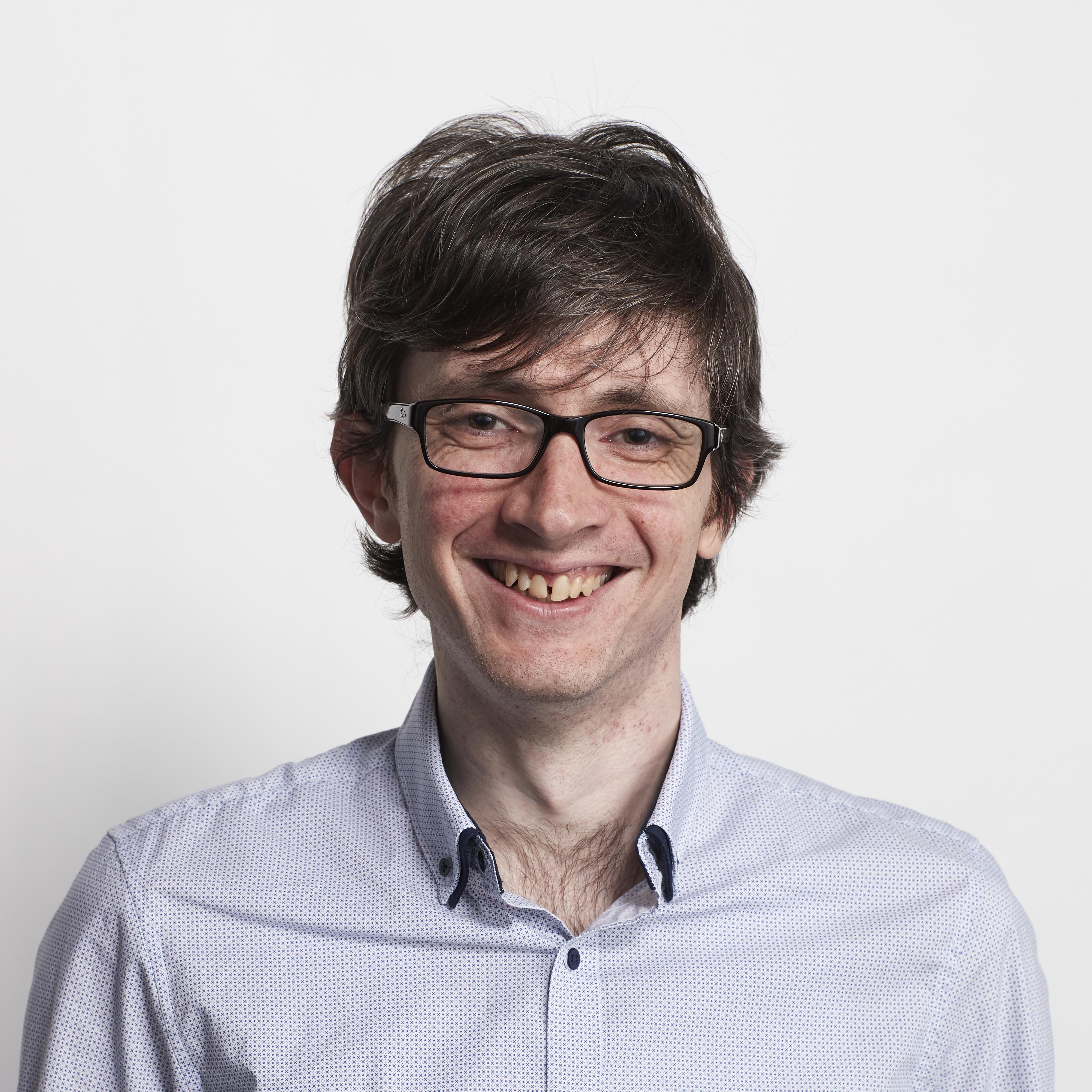
Felix Aplin
Felix Aplin is a postdoctoral fellow at the Translational Neuroscience Facility, Faculty of Medicine & Health at UNSW Sydney. He holds a PhD in Medical Sciences from the University of Melbourne, and has completed research fellowships at Johns Hopkins Hospital and Hannover Medical School. He is currently a chief investigator at UNSW exploring new treatments for chronic pain, and he also works in neural engineering, medical bionics, brain-machine interfaces, and neural degeneration. He is particularly interested in using technology to connect with, and repair, our nervous systems.

